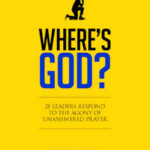We run our website the way we wished the whole internet worked: we provide high quality original content with no ads. We are funded solely by your direct support. Please consider supporting this project.
Speaking of Tragedies
 Since we’ve been reflecting on recent tragedies and the varying responses to them, we thought we would add this voice to the mix. This article from the New Yorker points out the differences in media coverage between the Aurora shootings and the shootings at the Sikh temple in Wisconsin.
Since we’ve been reflecting on recent tragedies and the varying responses to them, we thought we would add this voice to the mix. This article from the New Yorker points out the differences in media coverage between the Aurora shootings and the shootings at the Sikh temple in Wisconsin.
From the article:
Sadly, the media has ignored the universal elements of this story, distracted perhaps by the unfamiliar names and thick accents of the victims’ families. They present a narrative more reassuring to their viewers, one which rarely uses the word terrorism and which makes it clear that you have little to worry about if you’re not Sikh or Muslim. As a Sikh teaching at a Catholic university in the Midwest, I was both confused and offended by this framing. One need not be Pastor Niemöller to understand our shared loss, or to remember that a similar set of beliefs motivated Timothy McVeigh to kill a hundred and sixty-eight (mainly white) Americans in Oklahoma City.
Image by Alan Cleaver. Used in accordance with Creative Commons. Sourced via Flickr.
Category: General
Tags: Problem of Evil, Racial Reconciliation
Related Reading

The Coming Kingdom & Racial Conflict
In the book of Revelation, we see a glimpse into the future. John says he saw, …a great multitude that no one could count, from every nation, tribe, people and language, standing before the throne and in front of the Lamb. They were wearing white robes and were holding palm branches in their hands. And…

Why? The Question That Cannot Be Answered
Yesterday Greg sent out the following flurry of tweets: To provide some background to these tweets, the following illustration will prove helpful: They mystery of evil and an eight-second interval Let’s assume that there is an eight-second interval between two cars. Now let’s try to explain why there is this eight-second interval at this particular…

A Step Toward Racial Reconciliation
In this sermon clip, Greg, as a representative of a white man in America, asks for forgiveness of people of color for all the harm that white America has done. This is not about disparaging whiteness. This is simply about acknowledging the truth of our heritage so that we can make a way for healing,…

Podcast: Dear Greg: Does God Accommodate, or is God Simply Powerless?
Greg wrestles with a really tough tragedy and offers theological insight. http://traffic.libsyn.com/askgregboyd/Episode_0359.mp3

Divine Wisdom
Why doesn’t God end it all and stop the slaughter? Why does God allow suffering and evil to go on so long? Here, Greg offers two possible answers to these questions. Option A is that all evil somehow is designed by God and somehow brings glory to him. But Greg thinks Option B is a better explanation, and it involves…

When Prayers Go Unanswered
Recently Frank Viola published a free e-book where 21 Christian leaders responded to the following question: Why is it that God doesn’t often answer the desperate prayers of His people for deliverance, protection, healing, etc.? You can download the free ebook by clicking here. The following excerpt is Greg’s contribution to this book: _____________________ Two very ill children are…
